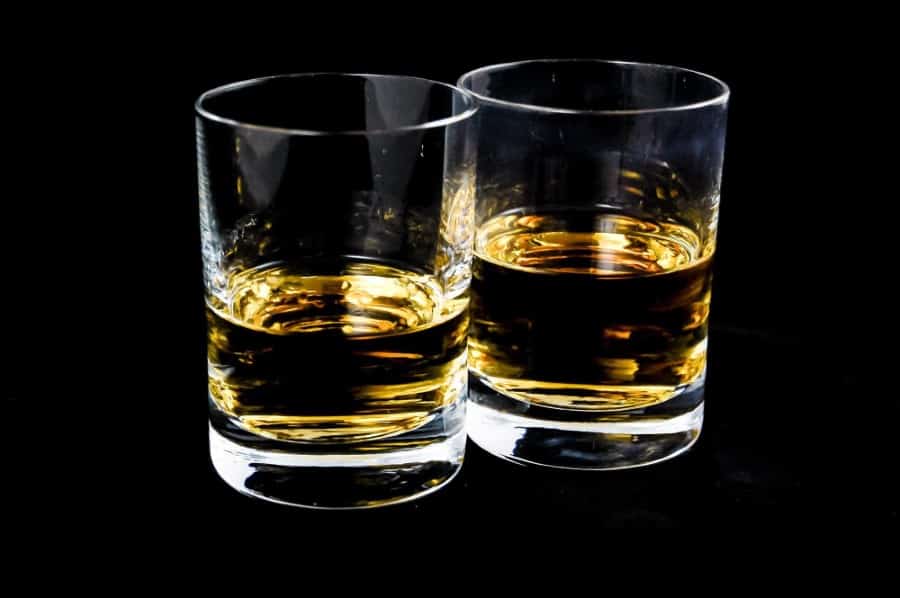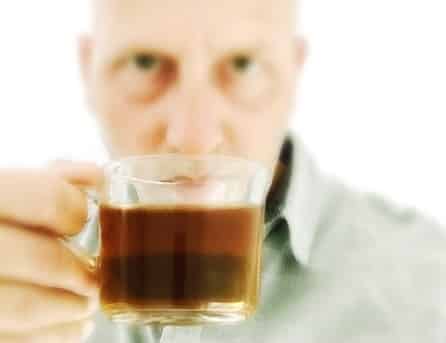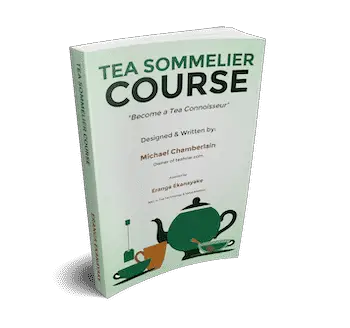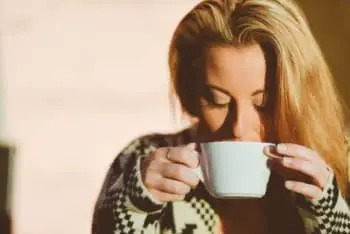I’ve seen this mentioned a number of times and wondered what exactly was meant by tea liquor, or the liquor of tea. It’s one of those things that you think you probably know, but wouldn’t necessarily want to ‘assume’ for the fear of being wildly wrong!
And at what point do we discuss tea as ‘having’ or ‘being’ a liquor? There is scant information around but I’ve gleaned all that I think is available, and, having made some sense of it, I’ve decided to provide an explanation of it here. I hope it serves you well.
So what is the Liquor of Tea? Not to be confused with the addition of alcohol. It’s generally regarded that when referring to the liquor of tea within the topic of tea alone, we are referring to the resulting liquid or ‘liquor’ produced after brewing or steeping the tea. Let me explain why this is the case.
Alcoholic Liquor vs Non-Alcoholic Liquor
The word liquor is more often than not the reserve of the alcoholic beverage variety. And as we know, there are many sorts of alcoholic liquors that can be added as addition to tea in order to alter the taste … or perhaps more importantly to calm the nerves, to ease stress, or simply to aid relaxation.

For example, historically, brandy in tea has long been a common alcoholic addition where liquor is added. After brewing the tea, and for the purpose of calming someone after receiving a shock of some kind.
Whether brandy in tea actually works is perhaps another article entirely, but one would assume any alcohol provided at a time of shock, or stress, would help calm the senses a little – I don’t think that’s really in dispute. The fact that it’s added to tea is simply to provide a more ‘respectable medium’ for what is essentially consuming alcohol!
Regardless, often when we are discussing liquor we almost always attribute it to that of an alcoholic beverage. However, tea, of its own is also referred to as a ‘liquor’.
Also not to be confused with tea liqueur. Which is a concentrated liquid also added to tea after infusion and can include flavors such as licorice, fruits
So Why Call It a Liquor?
I don’t know anyone that would look at a glass of water and call it liquor. And in that lies the answer. A cup of tea, regardless of what type it is, is no longer simply a cup of water. Chemically it has changed. It likely has a thicker viscosity to it than pure liquid. It has color, depth, aroma, and flavor. An overall change has occurred.
There are few other terms – in the English language at least, that you could really refer to what this liquid has now become. Other than saying that it now has liquor to it. Even though it is not alcoholic based.
Are There Different Liquors?
There are actually thousands of liquors. As many types of liquor as there are types of tea. Not only that but each infusion – of even the same leaves, can produce a changing and evolving flavor that provides yet a different liquor.
In many ways, as beauty is in the eye of the beholder, so is the same for the liquor of tea.
It’s all in the aroma, taste, aftertaste, and general senses that bring the liquor home to you. And each person can experience the same cup differently. Perhaps not vastly different, but with their own nuances.
How and When Do We Say ‘Tea Liquor’
As for when the tea has ‘a liquor to it’, you would refer to the liquor of tea from the moment infusion occurs between the Camellia Sinensis plant.
Or more precisely, once the infusion has occurred, from the point when your senses begin to define it further – be it green, white, black, or any other types of tea.
However, it’s not really sufficient to just say of any tea simply that ‘it has a liquor to it’. The reason being is that ALL tea has liquor to it, by virtue of the fact it’s altered after infusion took place.
In fact, you would likely use something like an adverb, or adjective to describe WHAT that liquor was – for you at least.
Examples of Tea Liquor Use
In tea circles, the word liquor is a far cry from builders tea.
The Liquor is commonly used as an aid to describing the experience that the tea is providing the drinker. It’s more akin to an afternoon tea conversation!
Here are some examples of how one might use liquor when describing your tea:-
- “This tea has a strong-bodied golden yellow liquor”
- “The liquor has a refreshing briskness to it, and a hint of fruit”
- “It has a pale liquor, and a subtle vegetal aroma”
- “A robust strength, and a burgundy brown liquor”
How Do We ‘Experience’ the Liquor of Tea?
It’s a bit like an art expert describing a painting. That might sound a bit pompous! But it’s a process of the senses in much the same way that art is.
Firstly, there’s the look of the tea. How visually appealing it might appear. The color has changed, the depth of color has also changed which implies the level of strength to the tea, and perhaps the amount of tannin the leaves have produced

Is it pale, or copper-colored, green hue, etc? These are all signals. But you will need to dive in deeper to understand more from this. A deeper color does not necessarily mean a stronger taste or aroma.
So to the aroma next then. Not only externally through the nose, but when tasting the aroma also filters upward inside, through the nasal passages and provides a further – perhaps different level of aroma.
The taste, as the tea passes over the thousands of taste receptors in the tongue, brings about different tastes. Such as bitter, woody, or earthy, etc.
Finally, there may be an aftertaste. A lingering mild bitterness or sweetness, or perhaps a roasted flavor or a tannin bitterness to the back of the throat. The taste possibilities are almost as endless as the English dictionary can offer descriptive words!
Final Words on Tea Liquor!
It might seem a bit high-brow to use this kind of method to describe tea. In all fairness, most don’t. But when enjoying tea many people will describe in their own way how the tea is tasting for them, and really all one would be doing is describing the liquor – we may not use the exact word, but we’re partaking in the same act of enjoying the liquor.
Using the term ‘liquor’ is usually reserved for Sommeliers and hardened tea fans, and is a way of enjoying and expressing their interest and liking for tea, I can’t see anything wrong with that. But I can certainly see the fun in joining in!
Well, I hope my explanation of tea liquor has provided you with a greater definition of the liquor of tea. Or the liquor in tea. Next time you look at a cup of tea, perhaps you’d like to brighten up the occasion by giving this whole ‘describing the tea liquor’ a try.
If you liked this article, and if you’re interested in tea, then you’ll love my tea course! Here’s some more information

Take the fast track and become a tea connoisseur
Whether for enjoyment or considering a career as a tea sommelier. This course has everything you need to enhance your tea knowledge and tea-tasting skills.
This course keeps it simple with step-by-step tea tasting and easy reference guides
For pleasure, or as a precursor to a career in the tea industry. Find out what tea sommelier actually does, their career paths, and what they earn.

Find out more about the Teahow Tea Sommelier Course!

It’s really good . Loved it …I am gonna use the word.